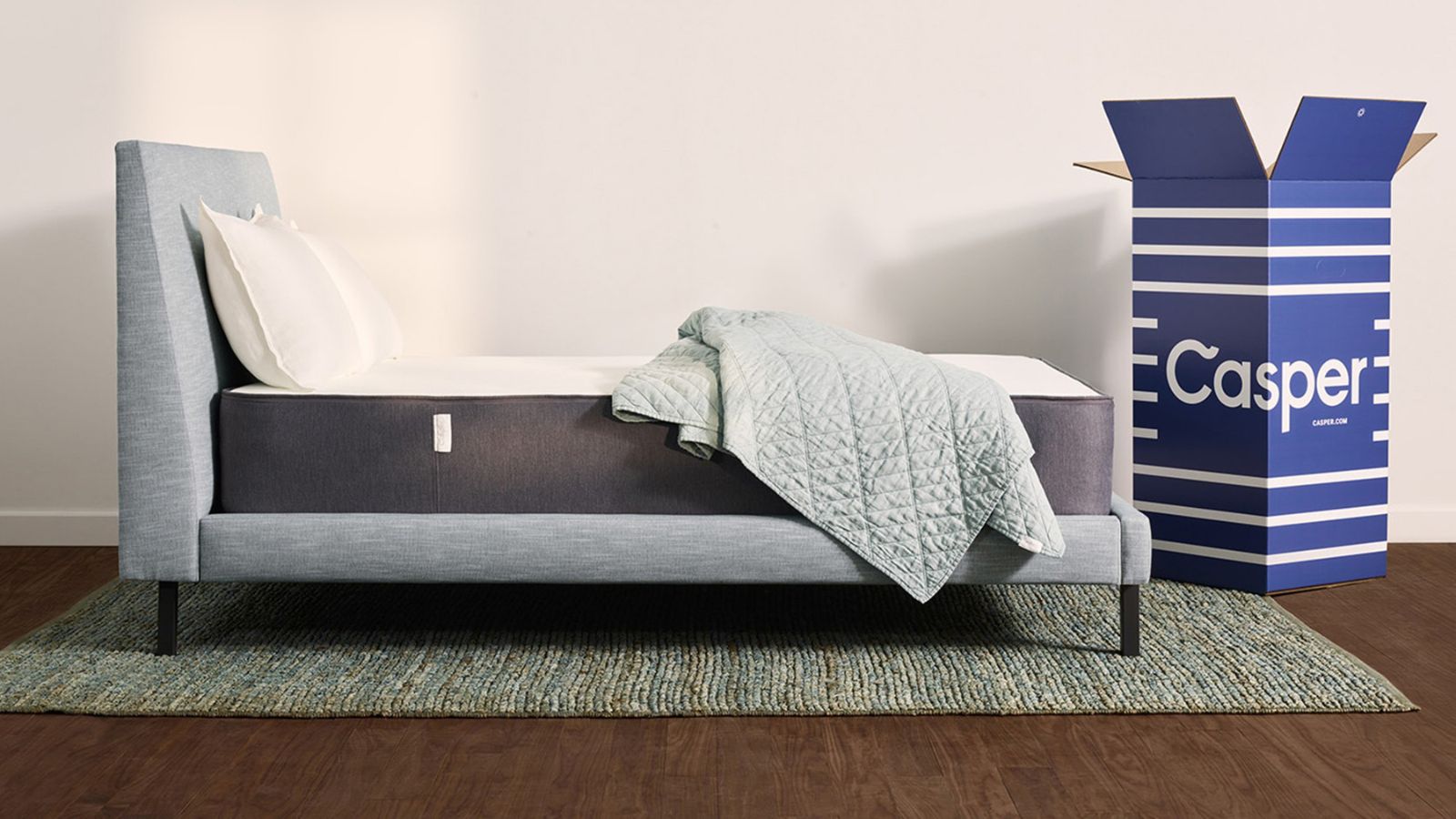
A sagging mattress is an unfortunate fact of life. If you're sleeping on an old-fashioned innerspring, you'll hear it in the creaking coils. If you're sleeping on a memory foam model, you'll see and feel the dips in the comfort layer. When you lie on a sagging mattress, you're sacrificing spinal alignment, pressure relief, and motion isolation.
Although the quality of the materials does make a difference, even the best mattress will start to sag as time passes. If your sagging mattress is impacting your sleep quality, and you're consistently waking up with aches and pains, then it might be time to replace your mattress.
The only way to fix a sagging mattress is to send it back to the manufacturer. In the meantime, there are some strategies that you can implement to minimize the effects of sagging on your mattress. I asked my expert panel to tell us whether and how it's possible to slow the sagging, and when it's time to buy a new mattress, instead.
How to fix a sagging mattress – 4 expert tips and tricks
Now, before you go rotating your mattress or replacing your foundation, be sure to double-check the terms and conditions of your mattress warranty. Normal aging as a product of nightly wear and tear won't be covered. However, if you can prove that the sagging is causing structural issues inside your mattress, then you might be entitled to repairs or replacement.
1. Use a mattress topper
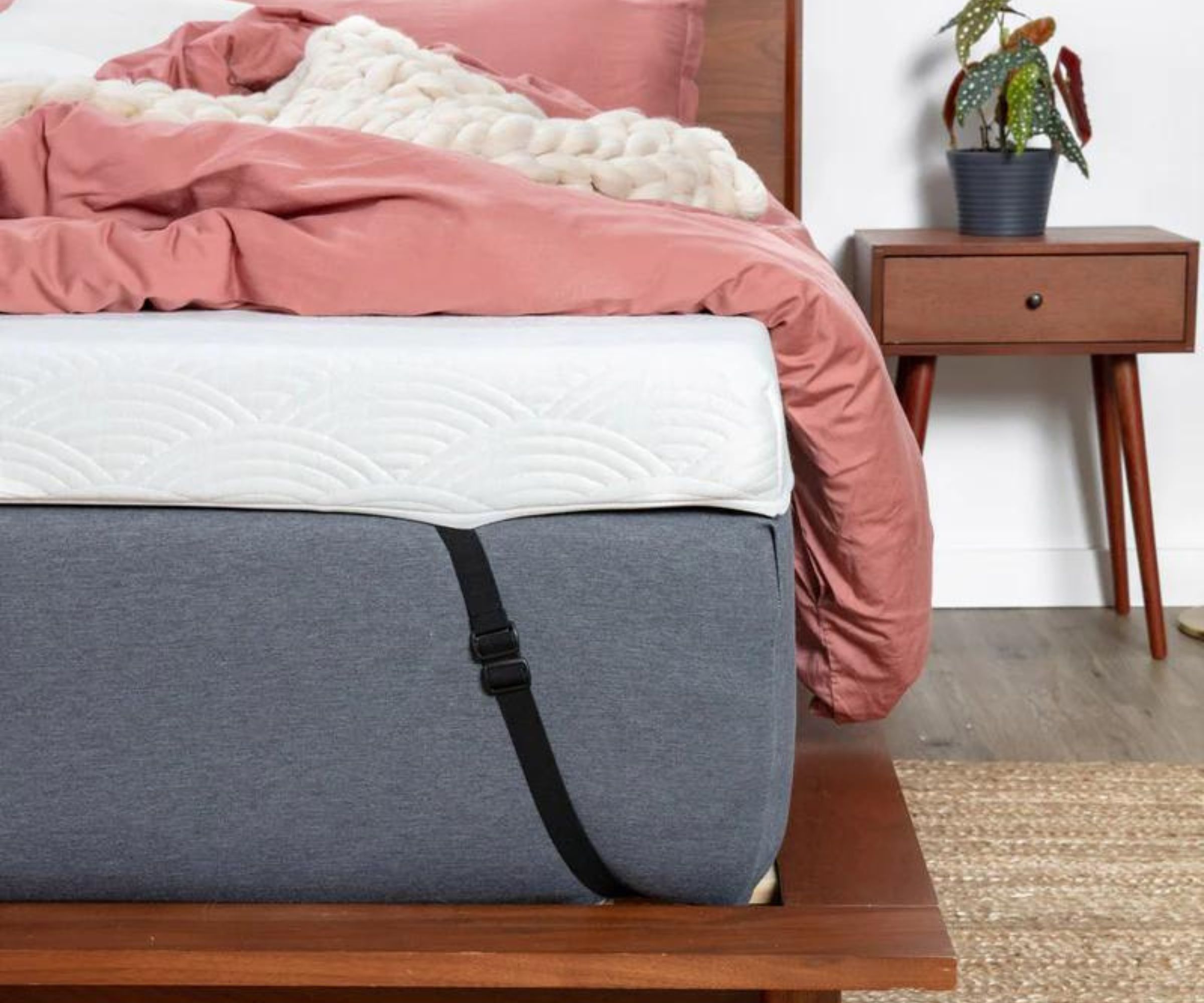
One of the best mattress toppers could make a big difference to the look and feel of your bed. It's an easy fix, and far more affordable than a new mattress. According to Nicole DelMasto-Vickers, Associate Category Manager for Bedding Accessories at Mattress Firm, 'a mattress topper can help extend the life of your mattress by acting as an additional protective layer. You want something that can absorb much of the daily wear and tear from pressure, body weight, and sweat.'
'By reducing the direct impact on the mattress, the topper helps to prevent sagging, indentations, and damage to the mattress, decelerating its deterioration,' explains Nicole. 'A mattress topper adds comfort and support, which can delay the need to purchase a new mattress.'
'Mattress toppers come in various materials, such as memory foam, latex, or down, which can adjust the firmness or softness of your mattress,' says Nicole. 'A sagging or overly soft mattress should feel much more supportive with a firm mattress topper.' Still, with so many makes and models, it's easy to feel spoiled for choice. So, to save you time and money, I've picked out a few of my favorite mattress toppers, tried and tested by an H&G expert. Follow my mattress topper buying rules and you won't go far wrong.
Firmness: Medium, Plush
Thickness: 2", 3"
Type: Organic latex
+ Breathable
+ Durable
- No corner straps
Filled with GOLS certified latex and wrapped in GOTS certified cotton, 'this topper is the ultimate upgrade for eco-conscious shoppers,' says expert tester Antonia Santoro. 'If it came with corner straps, I'd give it the full five stars.'
You can find more detail in our Avocado Organic Latex Mattress Topper review.
Firmness: Medium-firm
Thickness: 3"
Type: Memory foam
+ Great pressure relief
+ Sleeps cool
- On the more expensive side
'Filled with three inches of supportive memory foam and flecked with conductive graphite for thermoregulation, this mattress topper made an immediate improvement to the look and feel of my bed,' says expert tester Kaitlin Madden. She says it's the best cooling mattress topper on the market, which is how she justifies the price.
You can find more detail in our Saatva Graphite Mattress Topper review.
Firmness: Plush, Luxury Firm
Thickness: 2"
Type: AirFoam
+ Solid and supportive
+ Excellent motion isolation
- Strong off-gassing smell
Before they started testing the Nolah Mattress Topper, Jamie Davis Smith and her husband were dealing with persistent lower back ache from a soft, sagging mattress. 'Now, my husband says his back pain has completely disappeared,' says Jamie, 'which is proof it was never a muscoskeletal issue, but a mattress issue.'
You can find more detail in our Nolah Mattress Topper review.
2. Flip or rotate the mattress
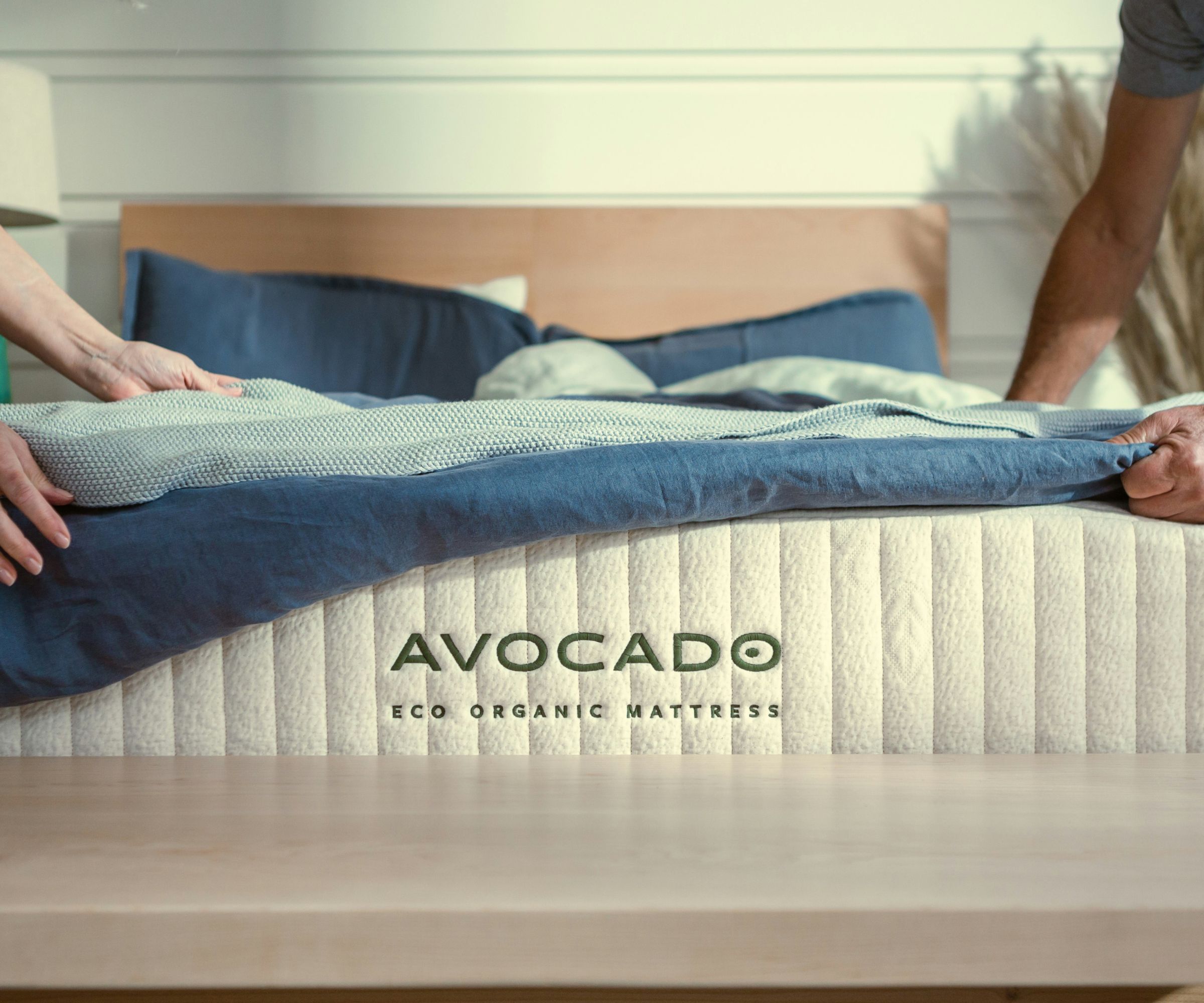
As founder and CEO of Essentia, the organic mattress brand, Jack Dell'Accio is always looking for ways to make his mattresses last longer. He's landed on regular rotation as an easy way to support a sagging mattress without spending a cent.
Jack says that 'rotating your mattress 180 degrees can help to even out wear over time, especially in those high-traffic areas of the mattress, where indents and impressions develop. Depending on your mattress type and how often you sleep in it, you should rotate your mattress once every three to six months to reduce the effects of sagging.'
If you're thinking about flipping your mattress, hold fire. 'Many modern mattresses are designed as no-flip,' says Jack. What this means is that there is a base layer at the bottom of the mattress (commonly filled with springs or high-density foam) and a comfort layer at the top. The base is meant to feel solid and supportive, and the comfort layer is supposed to cushion your joints. If you flip the mattress, you'll create a soft, squishy base, which will only exacerbate the sagging.
3. Replace the foundation
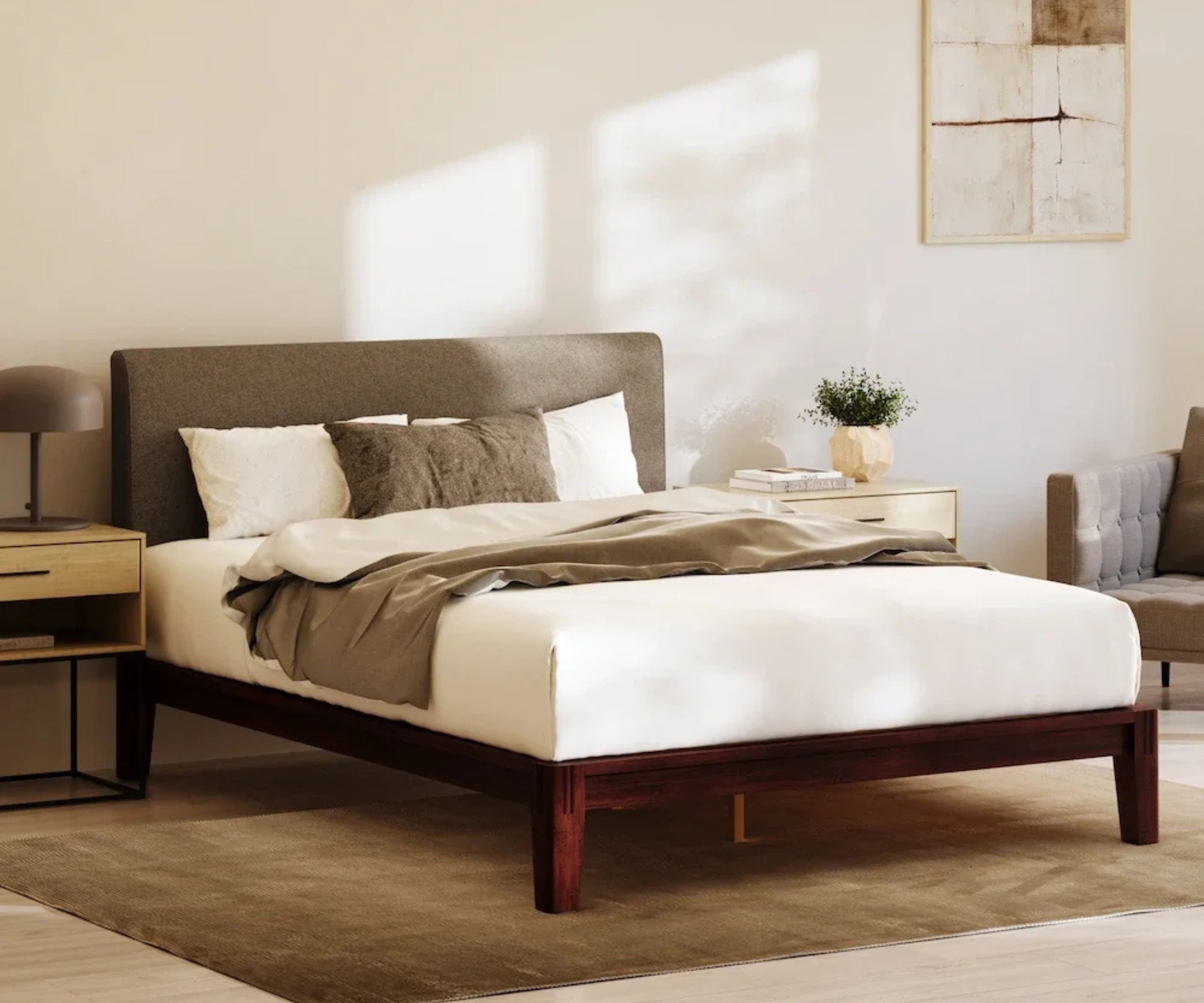
'The foundation is a crucial part of the mattress set-up that often gets overlooked,' says Jack Dell'Accio. 'A worn-out or inadequate foundation can exacerbate sagging. Check if your foundation is providing the necessary support. This is especially important if you're sleeping on a memory foam or latex mattress, which needs a flat, even surface for solid support.'
'If your foundation is bowed or slatted too widely, consider replacing it to give your mattress more support and prolong its lifespan,' says Jack. You're looking for one of the best bed frames: something with plenty of legs and tightly spaced slats to offer even support across the center and around the edges of the mattress. In a pinch, you could always throw a piece of plywood under your mattress to create an even, firm base.
4. Use extra pillows
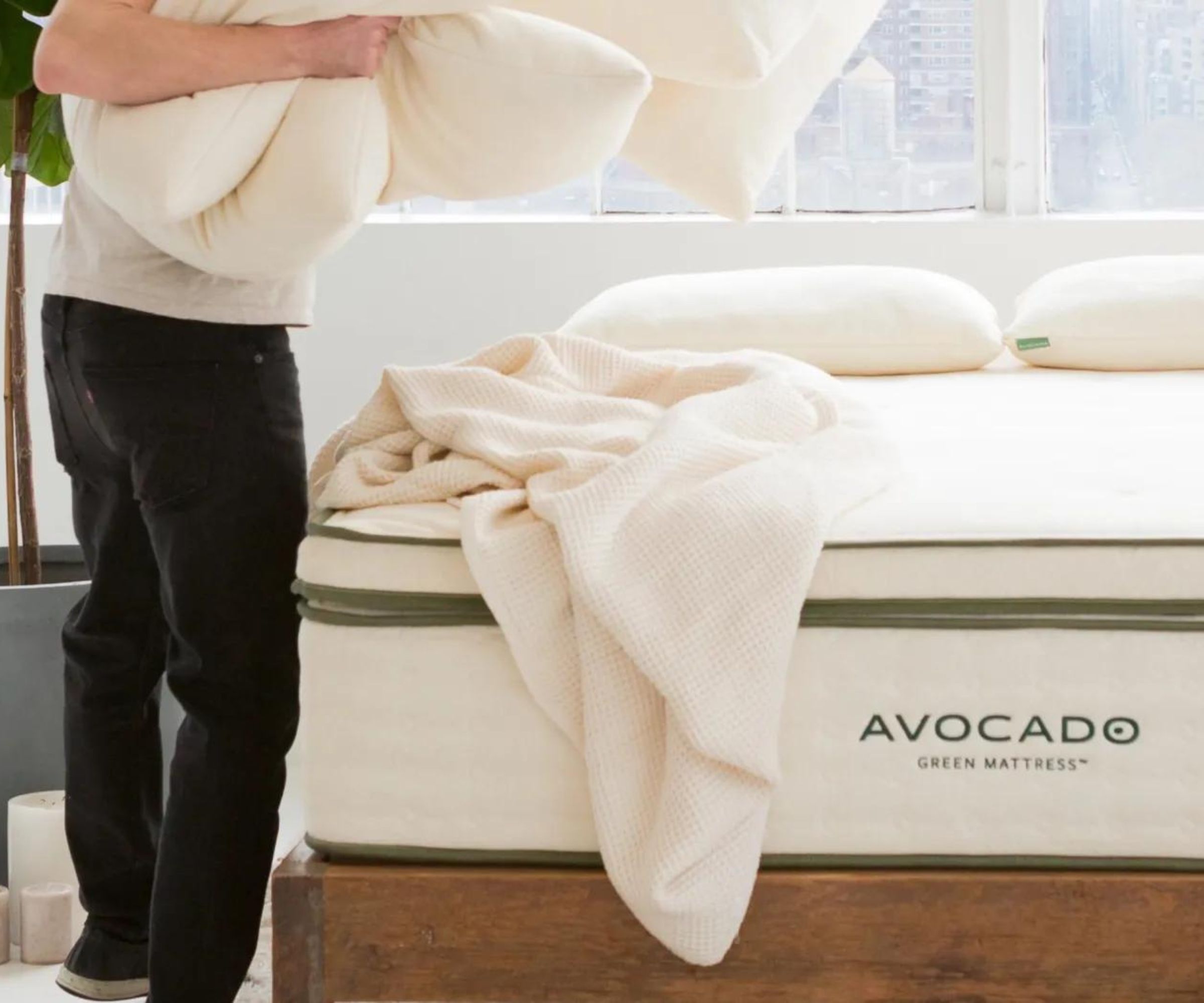
Strategic arrangement of the best pillows won't fix a sagging mattress, but it could offer some temporary support. 'Using extra pillows can be helpful for comfort and alignment,' concedes Nicole DelMasto-Vickers, 'but only if you have certain sleep needs. If you're a back sleeper, placing a pillow under your knees can help with spinal alignment and reduce the strain on your lower back. If you're pregnant, or you sleep on your side, body pillows can help support your belly and back.
A word of warning for prospective shoppers: Nicole says 'you should avoid placing too many pillows under your head while sleeping because this could push your neck out of alignment and cause discomfort.'
'In summary, while these fixes may offer some temporary relief, a sagging mattress often signals that it's time to consider a replacement,' says Jack Dell'Accio. 'Investing in a high-quality, durable mattress built with resilient materials like natural latex will ultimately provide lasting comfort and support.'







